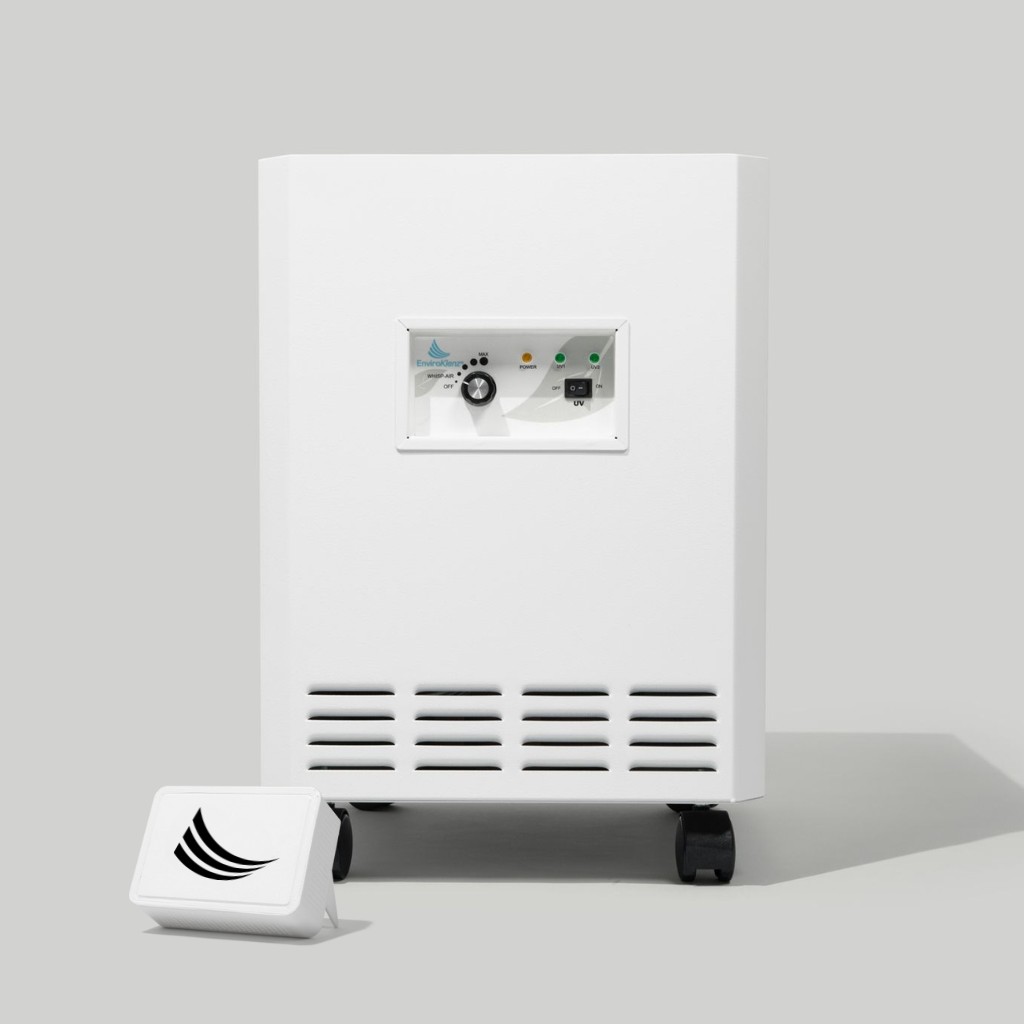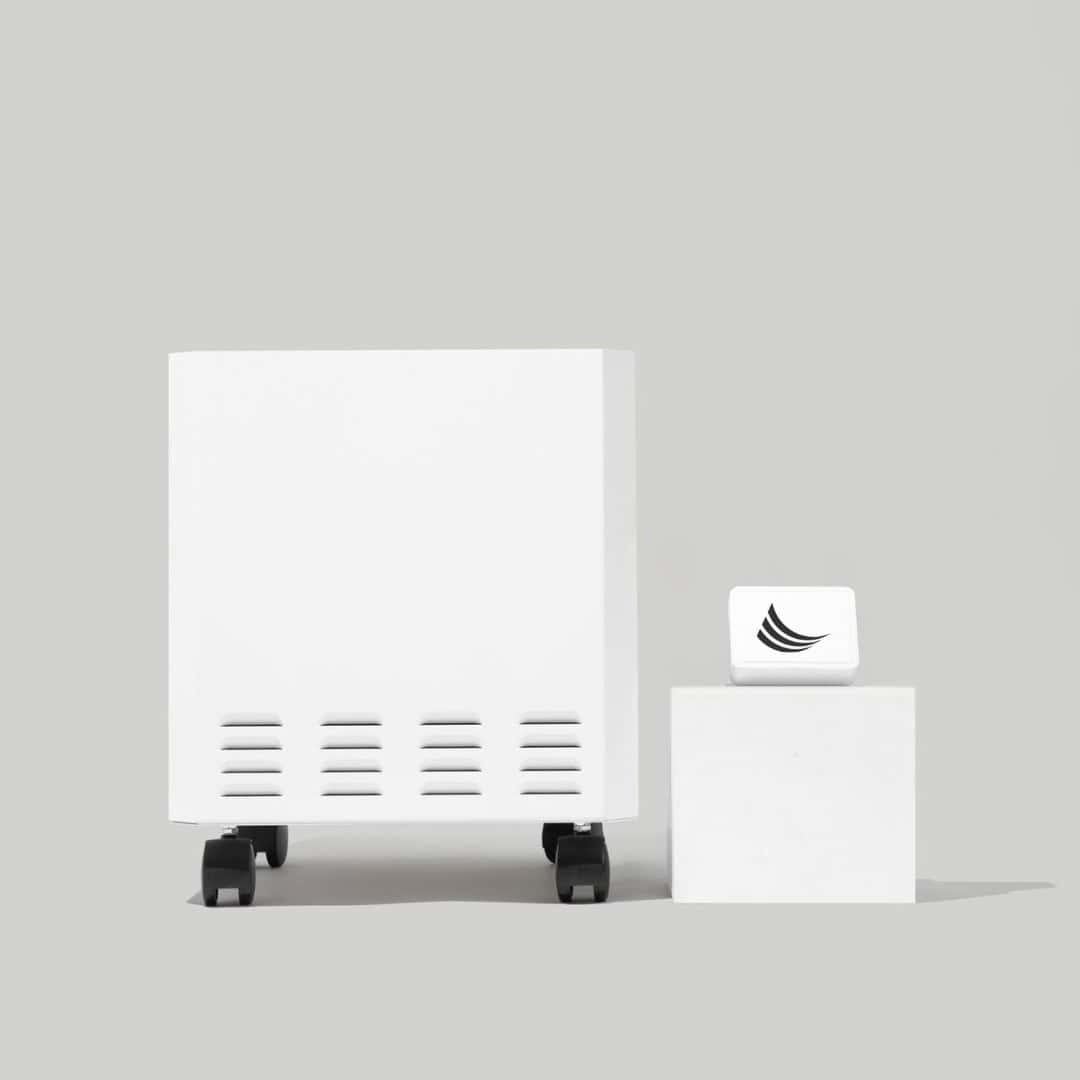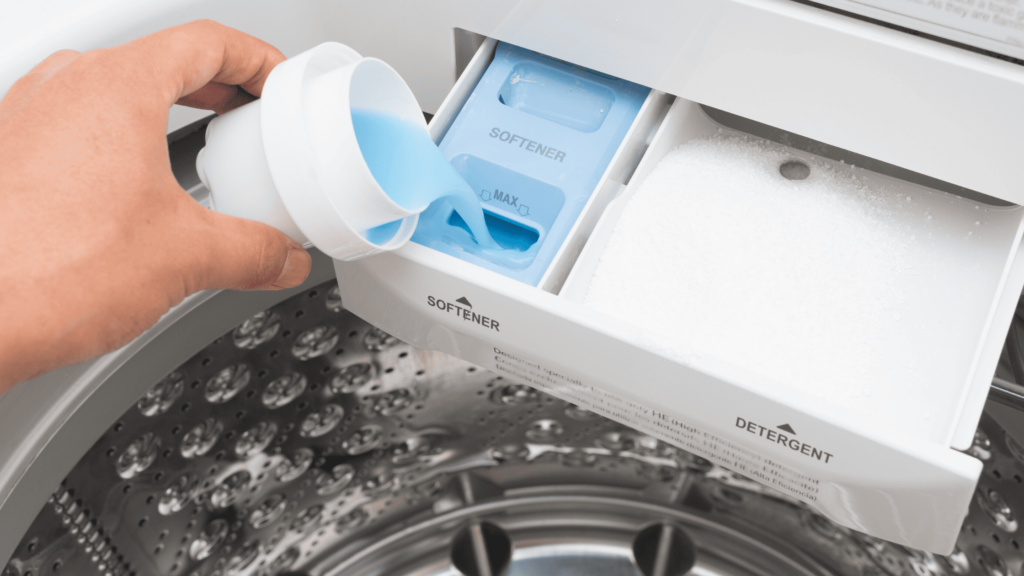Cleaning your laundry will require the use of different essential laundry care items that are purposefully used to attack and clean clothing and linens placed in your washing machine. From laundry detergent to freshening beads, to vinegar, bleach, baking soda, or borax, and even the use of fabric softener, all can be added products that you use in your washing cycle regularly. However, when it comes to the increasing use of products in your washing cycle, the more problems you may come across when it comes to cleaning and deodorizing your washable fabrics. These problems can include odor problems, deterioration of clothing, and even an impact on your washing machine after long-term use of these laundry care products in each wash cycle.
Fabric softener, in particular, is a laundry care product that is known for its adverse effects on clothing fabrics and even its impact on your washing machine. This laundry care item has been used since the 1900s and is utilized for its ability to soften fabrics that have turned rough from dyes, detergents, and dryers over time.
In this article, we are going to learn more about why fabric softener is bad for clothes and what you can do to remove residual fabric softener and fabric softener smell from your clothing.
What is fabric softener
Although many people use fabric softener, that does not mean that they know exactly what this laundry care product can do to your laundry load – well, other than softening your clothing’s fabric. According to Made How, they discuss how fabric softener is made and this process includes the following:
“Fabric softener is a liquid composition that can be added to your washing machine during the rinse cycle to make clothes feel better to the touch, this is done through the process of depositing lubricating chemicals on the fabric that can be found in this product. Fabric softener works to make the fabric feel softer, reduce static, and leave a fragrant odor on the clothing material”.
Fabric softener, however, cannot be used in every laundry load, as some fabrics will negatively interact with this laundry care product in the washing machine. Towels, in particular, are a fabric that should not have fabric softener applied to their wash load. The fabric softener will actually break down the absorbency, which will render the towel ineffective at its critical function, drying things and absorbing moisture quickly.
What does fabric softener do?
When it comes to adding fabric softener to your wash load, there are many benefits that this product provides to your clothing material, this includes:
- Softer Fabrics
- Elimination of Static and Wrinkles
- And Even an Added Fragrance to Fabrics
Does fabric softener clean clothes?
Fabric softener does not contain any surfactants within its composition, a key ingredient in detergent that gives the detergent its ability to clean clothing and other fabrics of dirt and other grim on the materials
Is fabric softener bad?
You may be wondering, so what is so bad about fabric softener? And the answer to this is the pack full of ingredients and chemicals that are used to manufacture this laundry care product. The different chemicals that are used in fabric softener have been classified as harmful to both your health, to the environment, and to the material of your clothing. The main chemicals used in fabric softeners include quaternary ammonium compounds, fragrances, preservatives, and colors.
These compounds are used in fabric softener to make clothing fabrics feel soft and wearable immediately after its wash cycle. Although this is a great feeling, to have soft fabric, the health effects that can be stirred from this chemical compound can be potentially hazardous to human health. According to the New York School of Medicine, they state the following about the health risks of Quats, “Exposure to quaternary ammonium compounds (Quats) has the potential to cause serious and preventable health effects including contact dermatitis, triggers asthma symptoms, can lead to eye and mucus membrane injuries, and even oral and gastrointestinal injuries from ingestion”.
Fabric softeners are packed with fragrant chemicals that will be emitted onto the clothing when applied during a wash cycle. These fragrances are a result of phthalates, a chemical that disperses fragrant scents when applied into the washing machine, however, these scents can be potentially hazardous. Fragrance chemicals are known to cause allergies, skin irritation, and even difficulty breathing in some individuals.
Fabric softener vs detergent
As we discussed earlier, there are several differences when it comes to fabric softener vs detergent, as each works in a specific function to accomplish a complete wash of your clothing. Laundry detergent’s primary goal and function are to remove the dirt, grime, and other odors and bacteria from the fabric of the clothing. Clothing will collect sweat, skin cells, food particles, dirt, and even hair on the fabric that will all contribute to the material being soiled or dirty. The surfactants in the laundry detergent will help to strip the fabric of all these contaminants, leaving it clean once again after using the detergent in your wash cycle.
Fabric softener, on the other hand, acts as a barrier on your clothing, as the softener will provide a thin film that will cover the material. The fabric softener generally works to strengthen the fabric and help reduce friction during the laundry process. As fabric softener is used in your wash cycle, it will contribute to the destruction of your clothing fabric over time and can also lead to sensitivities, as some individuals will react to this laundry care product when it is applied onto clothing fabric.
How to get fabric softener smell out of clothes
The EnviroKlenz Laundry Enhancer is a safe and effective laundry booster that is designed to remove stubborn laundry odors such as musty & mildew smells, fragrances from detergents and fabric softeners, perfume smells, and other scents that can accumulate on the clothing fabric. EnviroKlenz utilizes a patented earth mineral technology that works to attack noxious and toxic chemicals and odors from the fabric of clothing and other washable fabrics, containing and neutralizing the chemicals and odors from the material, without the use of masking agents or chemicals. The EnviroKlenz Laundry Enhancer works along with your normal detergent to enhance its ability to remove those tough odors that are nearly impossible for the detergent to remove from the fabric, including the smell of fabric softener.
EnviroKlenz will be the perfect addition to your washing routine, to help combat the many different chemicals and odors that have accumulated on the clothing from either other laundry products or from everyday use and wear of the material.
Laundry Enhancer Liquid
✓ Patented earth mineral technology works to attack noxious and toxic chemicals and odors from machine washable fabrics
✓ No chemicals or masking agents
✓ Safe to use on ALL machine types including HE machines
✓ Can be used on any washable fabrics including cotton, personal delicates, nylon, polyester, rayon, wool, and performance gear
Article Sources:
- Made How: Fabric Softener (link)
- The Environmental Working Group (EWG): Don’t Get Slimed: Skip the Fabric Softener (link)
- The New York University School of Medicine: Quaternary Ammonium Compounds in Cleaning Products: Health & Safety Information for Health Professionals (link)
EnviroKlenz® Medical Disclaimer:
“Any information that is provided on this website is not for the use by any commercial or personal entity without expressed written consent of the blog author. The material and statements illustrated within this blog are not intended to diagnose, treat, cure, or prevent any diseases or medical conditions. Nor does the author in any way guarantee or validate the validity, totality, or efficacy of any claims and will therefore not be held responsible for the content of any claims. Always consult your medical physician for any specific medical advice or recommendations.”








